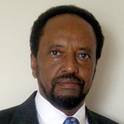
Just as European and African slave traders merchandised Africans and created the old African diaspora, successive colonial and authoritarian regimes2 of Ethiopia forced some Oromos out of their homeland, Oromia, and caused them to settle in the West. The displaced Oromo entered the United States as one of the "new" African diaspora groups four centuries after the old African diaspora began to be created. In the process, the Oromo diaspora emerged on the world stage. Whereas the old African diaspora lived under racial slavery and segregation for almost three centuries, the new African diaspora communities such as the Oromo came to enjoy a measure of freedom in the land of their refuge, primarily owing to the new conditions created by the struggle and sacrifice of the old diaspora. Elements of the Oromo diaspora who, under "Ethiopian political slavery,"3 lived without freedom of expression and association, came to exercise these rights in the United States. Members of this Oromo group created communities, political organizations, and scholarly associations. In foreign lands, they became able freely to define and defend their individual and collective national interests and to link the Oromo people to the global community. This article documents the experiences of the old African diaspora in building institutions and organizations, in order to impress the lessons of these experiences upon diaspora Oromo nationalists. Isolated from the world for more than a century by Ethiopian colonialism, the Oromo people became scattered around the world. Oromo diaspora communities nowadays are building close linkages among themselves and with the Oromo movement at home, thanks to globalization and modern communication technology. The diaspora Oromo nationalists, if acquainted with the African American story, can be inspired to contribute their part to the Oromo movement's struggle for survival, self-determination, and multicultural democracy. The article also aims to open a critical dialogue between the old and new African diaspora groups in the hope that African Americans, if informed about the tenacity and endurance of their African compatriots, can make common cause with the Oromo in the struggle for multicultural democracy and economic development on a global scale. Overall, the article will enable us to explore issues of transnationalism through which diaspora groups can direct and shape nationalist movements in the countries of their origin.
- Oromo Diaspora,
- Oromo national movement,
- "Old" African Diaspora
Available at: http://works.bepress.com/asafa_jalata/47/
